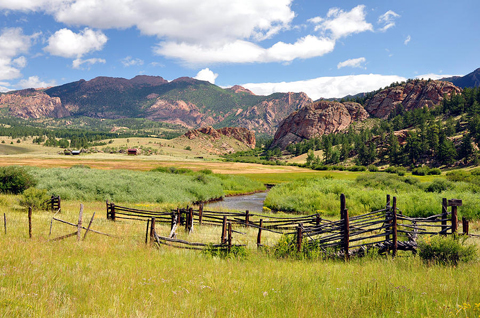
By Linda Breazeale
MSU Ag Communications
Mississippi State – Landowners and farmers need to educate themselves about liability issues related to people on their land, regardless of insurance, signs or fees.
“The most important lesson is for landowners to understand their responsibility in reducing risks on their property. All landowners need to do what they can to prevent accidents and document their efforts,” Smith said.
“They can be held liable for injuries to invited friends, paid guests or unwanted trespassers. Protection is not just about posting signs and buying insurance.”
For the webinar, Smith enlisted input from Rusty Rumley of the National Agricultural Law Center in Fayetteville, Ark. Rumley said several considerations impact liability, including actions taken by a “reasonably prudent” landowner and how the visitors came to be on the land.
“Premises liability is based on the notion of negligence, or failure to exercise the care that a reasonably prudent person would exercise in similar circumstances,” he said.
A landowner’s degree of potential liability will depend on how people came to be on the land. Were they invited? Did they pay to come on the property? Did they ask permission? Was the landowner aware of their presence?
Rumley said that while posting “no trespassing” signs is a good idea, landowners cannot set traps to catch trespassers. Landowners should clearly define areas appropriate for visitors and customers.
“Landowners have an obligation to warn guests of known hidden dangers, such as dangerous animals or obstacles, as well as a duty not to create situations that may injure them,” he said.
“When someone is on the land for business purposes, such as customers or employees, landowners have a general duty to use ordinary care to keep the premises reasonably safe for the benefit of the business invitee,” he said.
“There are agritourism statutes in about 20 states that exempt inherent risks (such as unpredictable animal behaviors or twisted ankles) from liability,” Rumley said. “Landowners still would be liable for intentional injuries or wanton disregard for the safety of others and if the owner knew of a potential risk — or should have known — but did not address it.”
Smith said the growth in agritourism businesses, such as corn mazes and U-pick fruit and vegetable farms, is also spurring interest in legal issues.
Additionally, as legislation is established to protect landowners, more and more people are venturing into agritourism businesses.
“Landowners may want to contact their State Legislators about updating laws to protect them from liability. The Mississippi Legislature passed a limited liability law two years ago, and it is up for renewal this year,” Smith said.
“Landowners and the state legislature need to be aware of the value of this legislation.”
Smith said there is confusion about where limited liability laws apply and where they do not.
“We need agritourism operators and landowners to understand the limits of the laws, whether they are recreational use or limited liability laws,” she said.
“They need to know the importance of private insurance even though there are laws in place to provide some protection.”
Becky Smith is with the Mississippi State University Extension Service’s Center for Economic Education and Financial Literacy. She recently organized a liability webinar to help Extension agents and landowners understand these issues, whether the land is private or open to the public.
For more information on agritourism and liability considerations, contact the local Extension office or Smith at becky.smith@msstate.edu.
